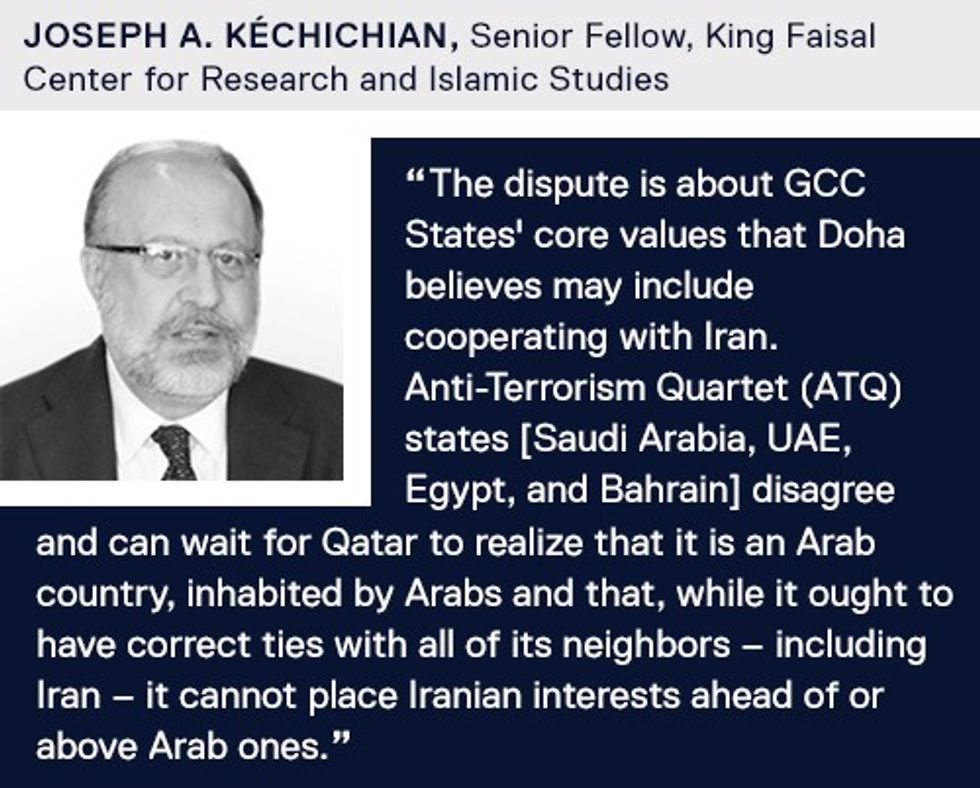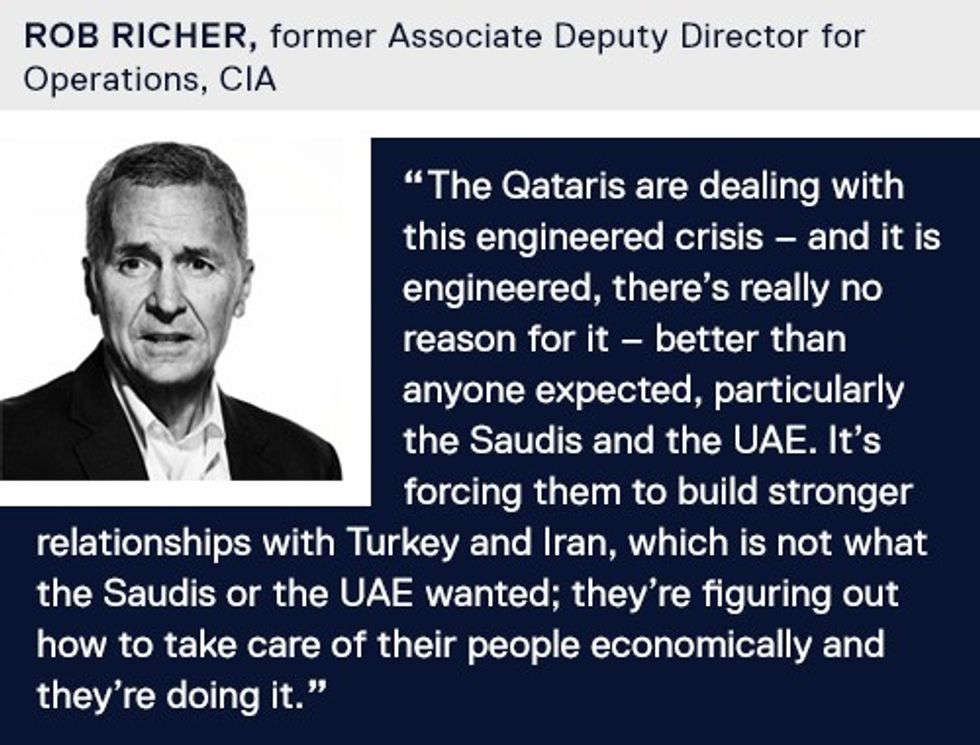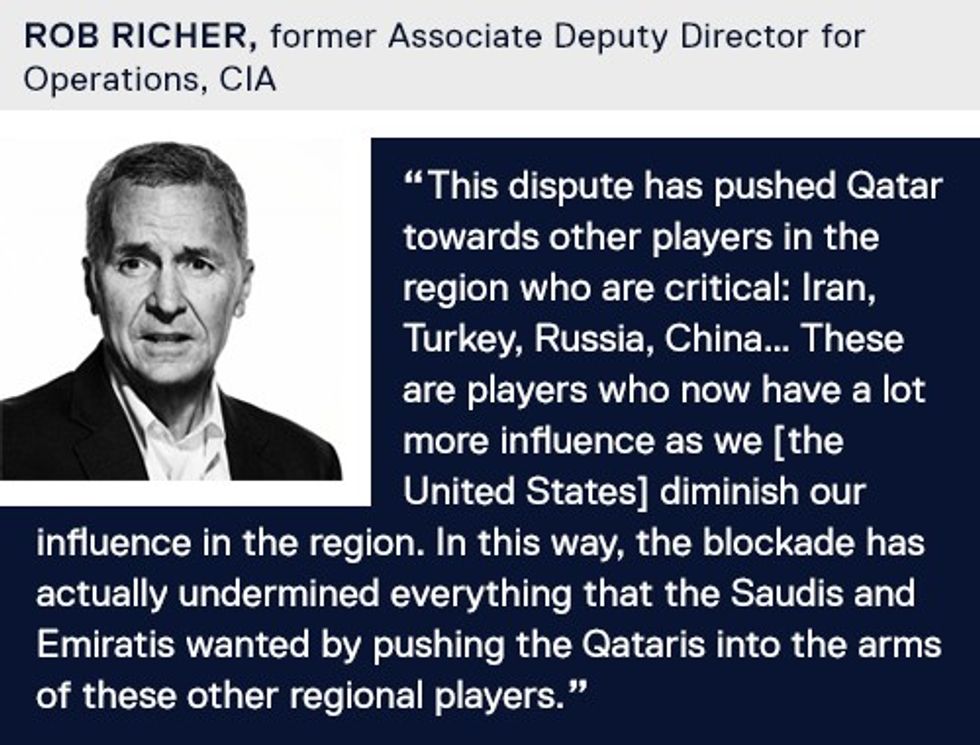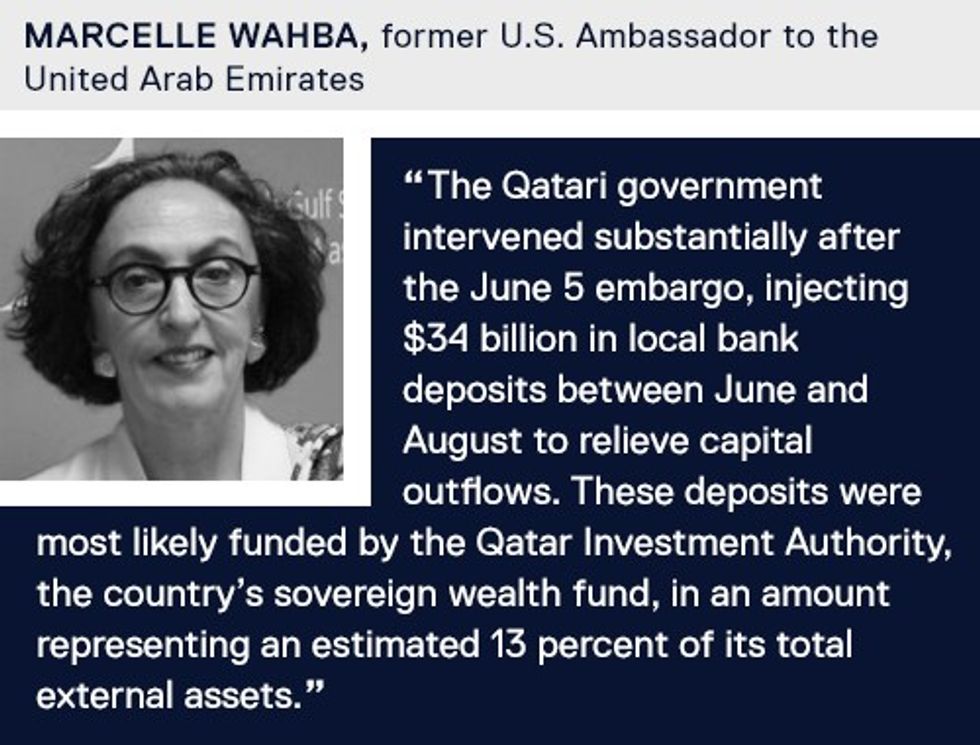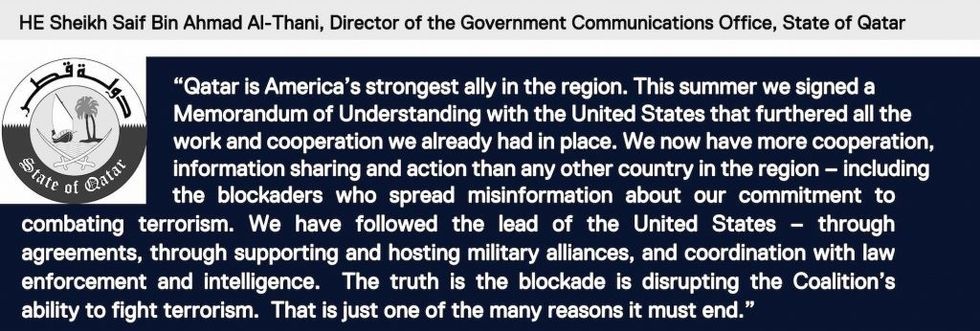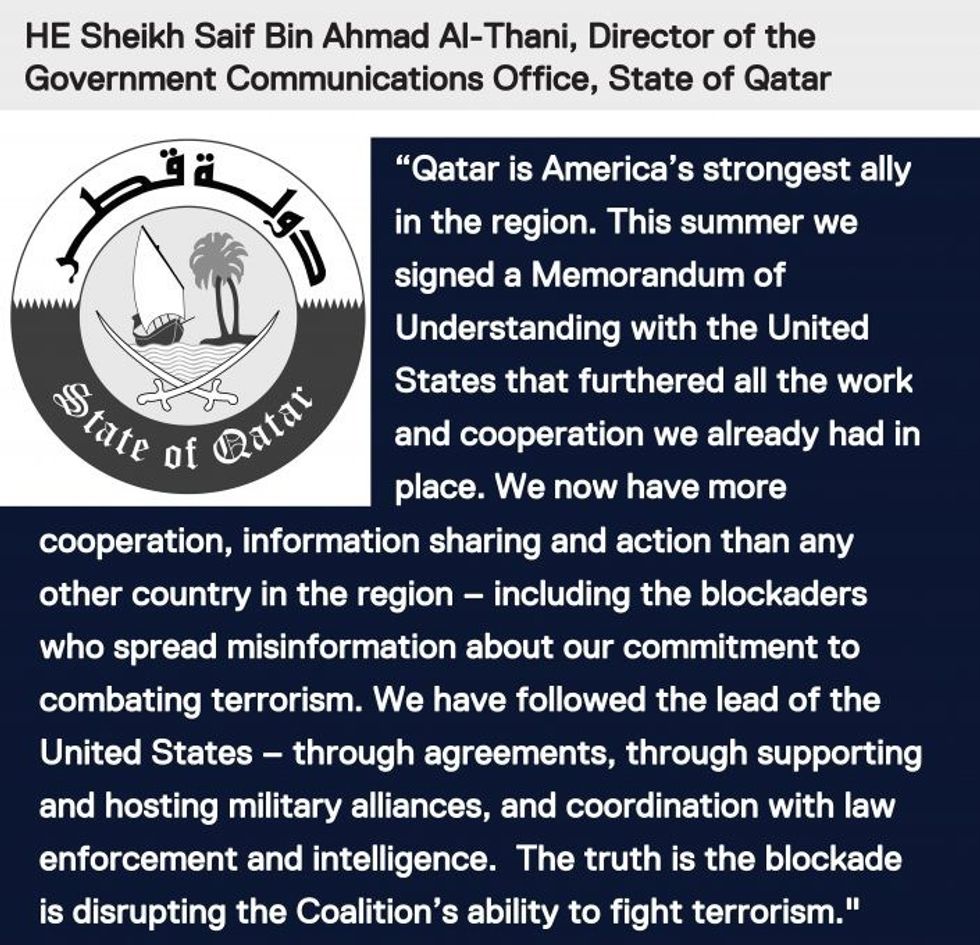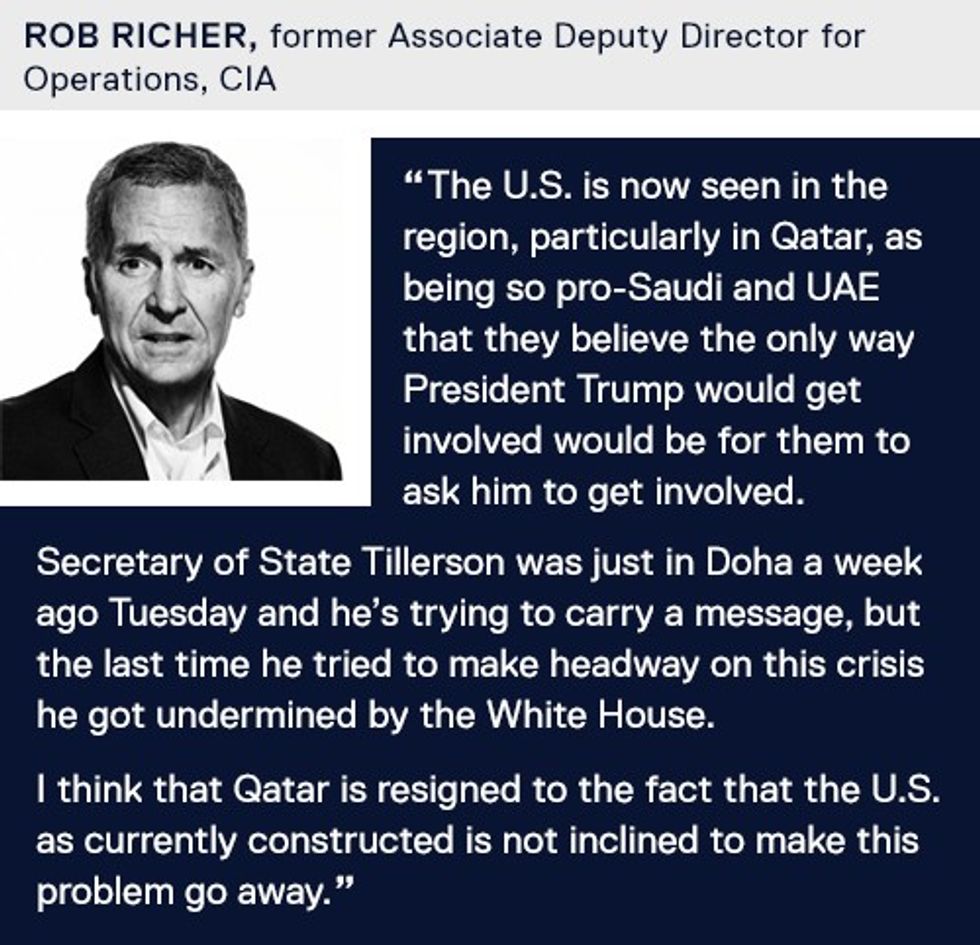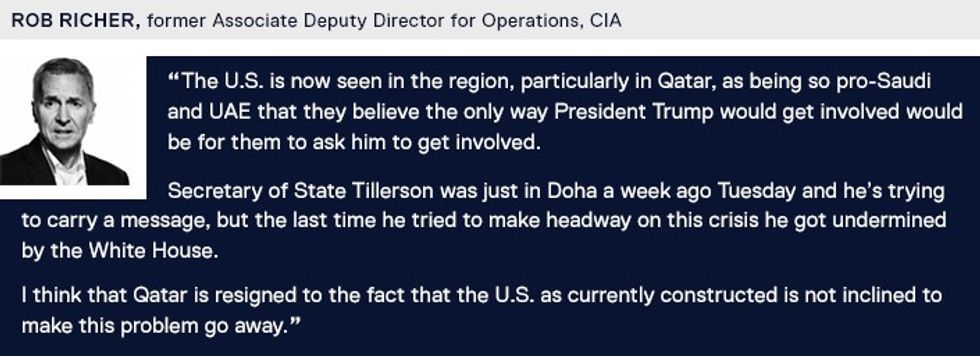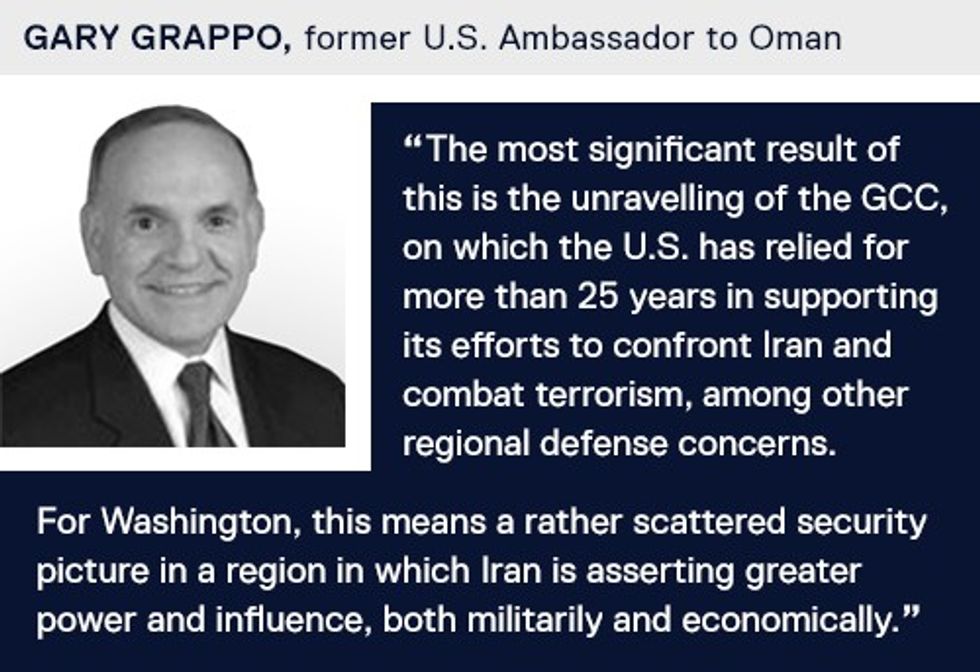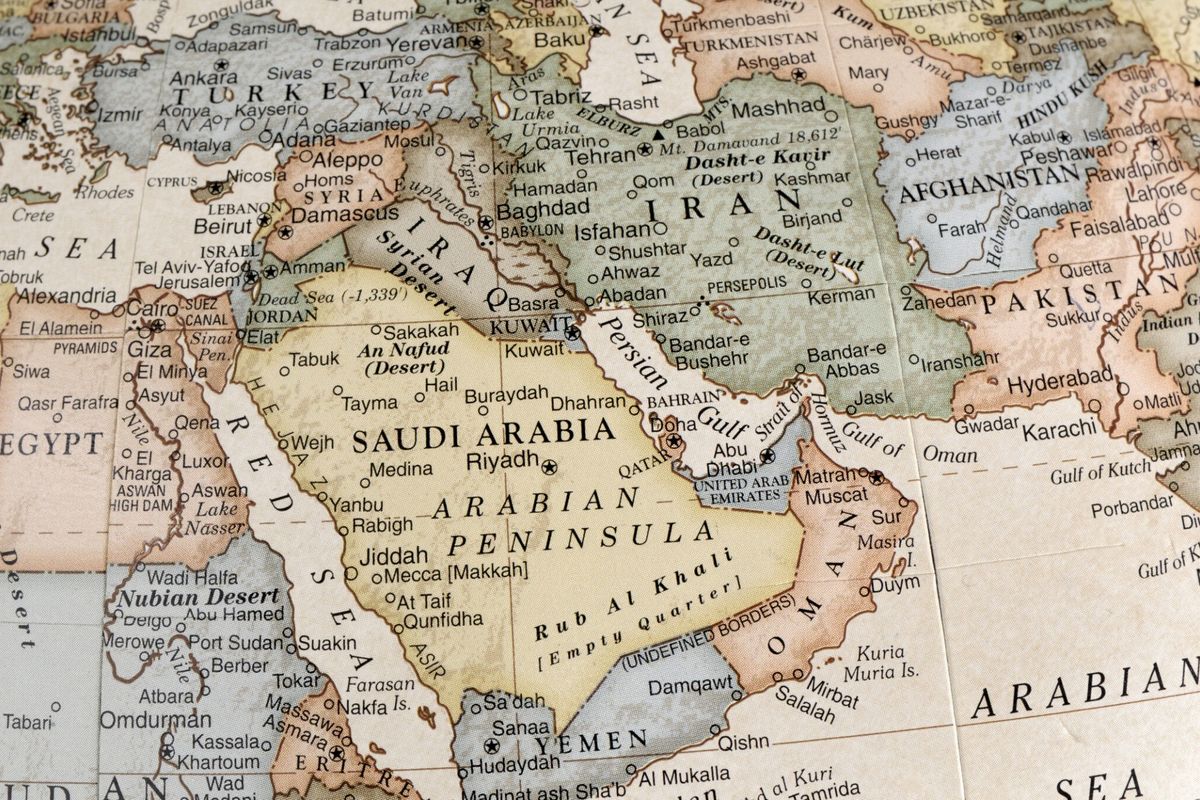Nearly five months on, the “crisis” between Qatar and a coalition of nine countries led by Saudi Arabia and the United Arab Emirates has reached a relatively stable equilibrium. The countries’ resultant blockade of Qatar - over its alleged support for terrorist groups and ties to Iran – has not significantly changed Doha’s behavior according to Qatar’s detractors, but rather has pushed it closer to Tehran. Without meaningful diplomatic progress between Qatar and the nine states, there is no end in sight for the dispute that has ruptured the Gulf Cooperation Council (GCC).
- Starting June 5th, 2017, Saudi Arabia, the UAE, Yemen, Egypt, Bahrain and the Maldives released rolling statements announcing they were cutting diplomatic ties with Qatar. Soon after, this bloc – later joined by four other states – instituted a blockade against Qatari trade, shipping, air traffic, and media.
- Despite relying on its Gulf Arab neighbors for roughly 80 percent of its food, the country has weathered the blockade better than expected by deepening its diplomatic, trade and military ties to regional powers outside the GCC, especially Iran and Turkey.
- U.S. policy on the dispute remains unclear, but President Donald Trump has reportedly offered to mediate talks between Qatar and the blockading states if the current negotiations, mediated by Kuwait, fail.
Qatar maintains that the blockade is motivated by Saudi-led opposition to Doha’s foreign policy divergence from the rest of the GCC, rather than a legitimate protest against Qatari support for terrorism. Since the Arab Spring, Qatar’s foreign policy has sharply diverged from the interests of its conservative Gulf neighbors, who saw the revolutionary and populist Islamist movements that gained power in 2011 with distrust. The tiny Gulf Sheikhdom has used its vast hydrocarbon wealth, and the influential state-affiliated Al Jazeera media outlet, to project influence across the Middle East and North Africa, and allegedly support insurgent revolutionary and Islamist movements.
- In June, the blockading states released a list of 13 demands, telling Qatar that it must end its alleged support for terrorism, end supposedly subversive efforts against their governments, cut its ties to Iran, and shutter Al Jazeera before the blockade can be lifted.
- In response to the 13 demands, the director of the Qatari government’s communications office, Sheikh Saif bin Ahmed al Thani, stated that the list “confirms what Qatar has said from the beginning – the illegal blockade has nothing to do with combatting terrorism; it is about limiting Qatar’s sovereignty and outsourcing our foreign policy.”
- On Oct. 30, Bahrain called for the suspension of Qatar’s membership in the Gulf Cooperation Council and said it will not attend the next GCC summit if Qatar takes part, significantly escalating the conflict.
- Doha points to a concerted disinformation campaign against it by the blockading states as a key driver in accelerating the dispute: for example, its news and social media sites were, according to the Qatari government, hacked in May and incendiary quotes attributed to the emir of Qatar, Sheikh Tamim bin Hamad al Thani. The blockading states cited those quotes as a key justification for cutting ties.
Qatar is feeling economic pain from over four months of blockade, but the damage has been far less acute than expected; the Qatari economy is damaged but stable for the moment.
The blockade has also led Doha to strengthen diplomatic, military and economic ties with Turkey and Iran. Qatar has quickly moved to imports of key commodities and consumer goods from non-blockading states, while rerouting steady natural gas exports around the GCC shipping blockade.
- Underlining closer trade ties to Iran, Qatar’s imports from the Islamic Republic grew by 60 percent in August, and Iranian businesses have rapidly expanded their presence in Qatar, particularly in the food sector.
- Turkey has supported Qatar since the beginning of the dispute and called for swift reconciliation. Ankara has also expanded its military presence in Qatar, increased exports to the country, and is discussing the creation of a new trade route to Qatar through Iran.
- Nevertheless, Qatar’s economy is damaged. Redirecting naval trade routes, air traffic, and oil exports is not easy, and Doha has already had to inject roughly $30 billion into the economy to keep it afloat – likely from its $338 billion sovereign wealth fund.
- According to a statement by the government of Qatar, the country remains the world’s largest exporter of liquefied natural gas and has “not missed or delayed a single shipment since the start of the blockade – including our regular pipeline deliveries to the United Arab Emirates.”
The dispute, now stalemated, will require an outside power with leverage over both parties to resolve. The U.S. response to the ongoing GCC dispute has been disjointed at best, ranging from vague statements by Secretary of State Rex Tillerson calling for calm and dialogue to comments and tweets from President Donald Trump that appear to praise the Saudi and UAE-led blockade.
- Qatar is home to the Al Udeid air base, which hosts the largest number of U.S. troops in the region, and is one of the major staging areas for the U.S. military in the fight against ISIS in Iraq and Syria.
- Trump tweeted apparent praise for the blockade soon after its announcement, saying “During my recent trip to the Middle East, I stated that there can no longer be funding for Radical Ideology. Leaders pointed to Qatar – Look!”
- According to the Qatari Emir, Trump recently offered to mediate the dispute at Camp David. In a “60 Minutes” interview, the emir said that Doha would be happy to participate in these talks. However, he claims that his government has received no follow up from the White House.
- Secretary of State Rex Tillerson and Secretary of the Treasury Steven Mnuchin visited Saudi Arabia and Qatar last week but no public progress was made on resolving the dispute. Tillerson has praised Qatar on its “reasonable” positions in the dispute in the past.
In Washington’s absence, the role of mediator might fall to another player – such as Russia. In the meantime, Qatar will likely move further into the Iranian orbit, complicating the Trump Administration’s efforts to counter Iranian influence in the region.
- The Saudi- and UAE-led blockade has not been damaging enough to force Qatar to give in to demands, but the blockading states do not appear willing to back down.
- Russia has significantly expanded its influence in other parts of the Middle East over the past decade, particularly in Syria, where it is the primary military ally of Syrian President Bashar al Assad.
- Closer Russian relations to Qatar would not only sow further division in the U.S.-aligned GCC but could also deliver Moscow increased leverage over Saudi Arabia, with whom it has recently negotiated coordinated oil supply cuts.
Fritz Lodge is a Middle East and international economics analyst at The Cipher Brief. Follow him on Twitter @FritzLodge.




